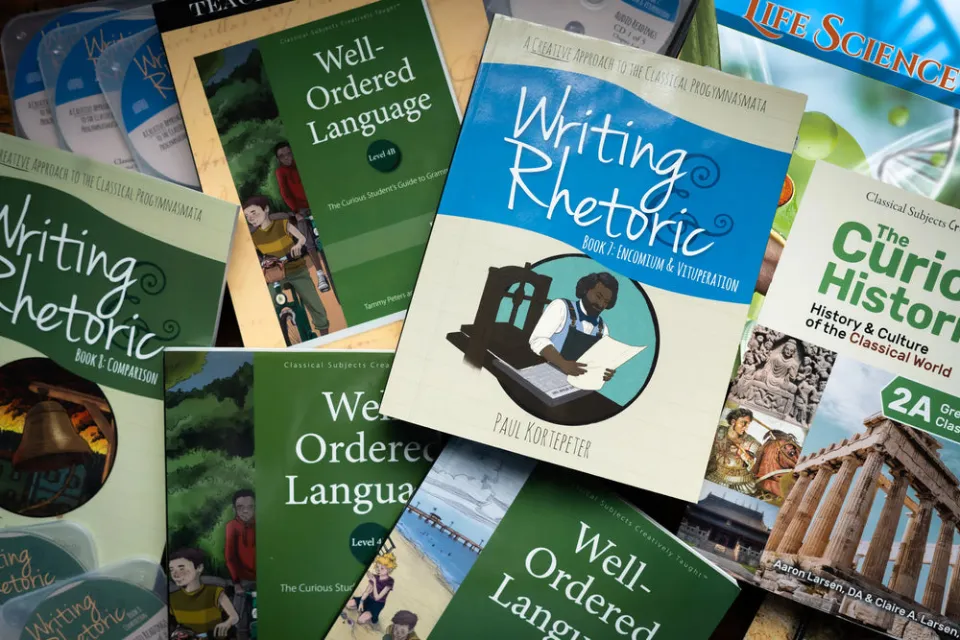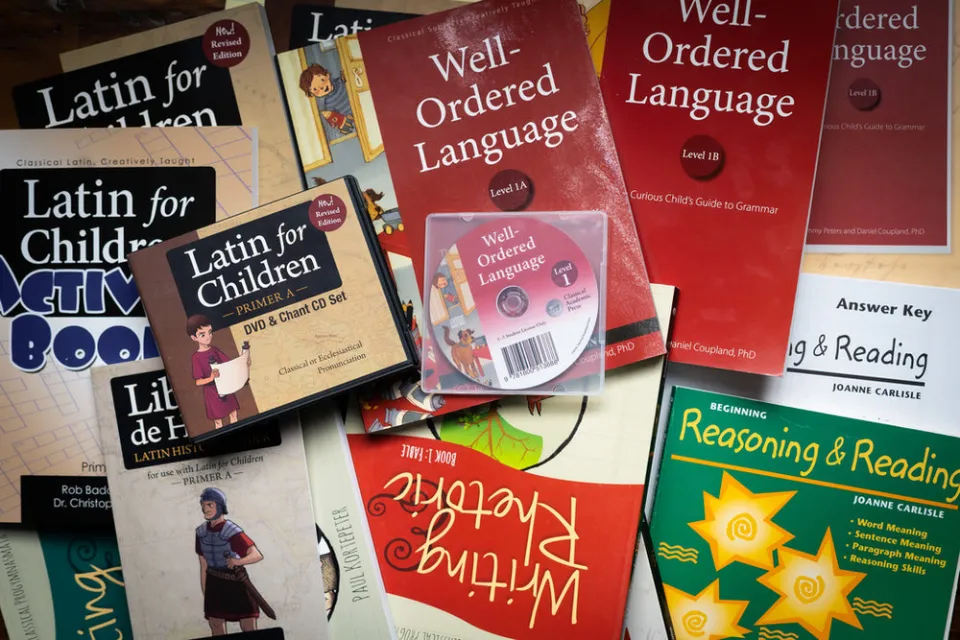
What is Classical Homeschooling: a Complete Guide
This Classical Homeschooling Guide explains the basics of the approach and explains why it might be the best choice for you.
You may be using or considering using a variety of homeschooling techniques in your lessons, including classical homeschooling.
The Classical education method of homeschooling is based on the historical concept known as the trivium, which focuses on logic and reasoning as the center of learning. Grammar, Logic, and Rhetoric are the three stages divided, with each stage concentrating on a different skill as the child matures.
This blog will discuss classical homeschooling.
What is Classical Homeschooling?
The noble overarching objective of the classical method is to instill in kids the capacity for independent thought.
Using the “trivium” model, children move through three main stages of learning: concrete learning (the grammar stage), critical learning (the logic stage), and abstract learning (the rhetoric stage). Many homeschooling families have embraced this style of education, which emphasizes language and literature.
Pros of Classical Homeschooling
- A strong foundation in language skills
- Encourages active mental learning
- Uses a child’s natural mental developments and curiosities for learning
- Covers lots of classic literature

Cons of Classical Homeschooling
- A heavy focus on reading can be challenging for struggling readers
- This method can be parent intensive
- Rote learning can be boring for some children
Stages of Classical Homeschooling
Teaching methods used in classical homeschooling are based on the three stages of learning: grammar, logic, and rhetoric.
The Grammar Stage
Similar to how grammar is the starting point for learning a language, the grammar stage of the trivium covers the years when kids are developing their foundational knowledge in a variety of academic fields.
Early elementary-aged kids tend to think in concrete terms, so memorization and repetition are the main learning strategies during this time. Making sure a student has a solid foundation in math, language arts, science, and social studies is what it comes down to for homeschoolers.
The Logic (or Dialectic) Stage
By the fifth grade, more analytical reasoning takes the place of concrete thinking. Students no longer accept information at face value; instead, they want to query, contrast, and comprehend how one body of knowledge relates to another.
The word most apt for this stage is, “why?” During the dialectic stage of homeschooling, it is important to introduce logic to the child by posing inquiries that will lead to sound judgments.

The Rhetoric Stage
The third and final stage of the trivium, as you might expect, builds upon the first two. The student combines the fundamental knowledge from elementary school with the critical thinking abilities they develop in middle school to be able to express their reasoned opinions and conclusions through debates and persuasive writing.
Traditional homeschooled high school students will place a lot of emphasis on communication. They will study accounting, engineering, politics, economics, public speaking, and essay writing.
Classical Education Homeschool Resources to Look At
Elemental Science (K-12)
A science curriculum for homeschoolers called Elemental Science has its roots in the classical education philosophy.
The program, which is divided into Grammar, Logic, and Rhetoric stages, incorporates interesting science readings, research work, experimentation and hands-on activities, optional memory work, and more to cover biology, physics, chemistry, Earth science, and astronomy in an engaging manner and in a significant amount of depth.
Noeo Science (Grades 1-8)
Incorporating aspects of Charlotte Mason’s teaching into a classical approach, Noeo Science is a faith-neutral, somewhat eclectic homeschool science curriculum.
The program is broken down into the traditional Trivium, which covers the Grammar and Logic stages and starts with a thorough introduction to scientific terms and facts before teaching students how to expand on them with more in-depth experimentation, analysis, and discussion.

The program employs a wide range of activities and methods to teach its material, providing students with a lengthy book list, vocabulary work, experiments and hands-on activities, journaling, and more.
The Story of the World (Grades 1-8)
The Story of the World is a very well-known and widely used classical homeschool history curriculum that was written by the author of The Well-Trained Mind.
The program follows a traditional approach to teaching history by being divided into four separate volumes: Ancient Times, The Middle Ages, Early Modern Times, and Modern Times. These volumes contain a variety of significant historical tales, legends, poems, and even primary documents that students can examine and analyze.
To keep students actively engaged in their learning, the program also includes a wide variety of hands-on learning activities to go along with the reading, including crafts, mini-projects, map work, flashcard work, timeline work, reviews, discussions, and more.
Simply Classical Spelling (K-2)
Simply Classical Spelling, a spelling program that was initially created by Memoria Press with students with learning disabilities in mind, is now used by a sizable number of students.
The program, which is broken up into two volumes, uses a combination of focused repetition, visualization strategies, oral recitation, hands-on work, and more to aid students in carefully and sequentially learning short word lists and enhancing their spelling abilities.
Lost Tools of Writing (grades 7-12)

An old-school writing course called Lost Tools of Writing emphasizes the growth of persuasive and logical writing and rhetoric.
The program’s three levels introduce students to the persuasive and comparative essay, the judicial address, and the deliberative address. Students also learn to write in an organized, sequential, and structured manner by adhering to the Canons of Writing, mastering key writing skills, and utilizing a variety of helpful charts and tools the program offers.
Lessons are taught using a blend of literature-based modeling, analysis, Socratic dialogue, and in-depth discussions, making for a very interactive, thought-provoking, and engaging experience for all involved.
Song School Latin (Grades 1-4)
Younger students can learn the basics of Latin through the fun and engaging Song School Latin program.
Its two books teach students the very fundamentals of conversational Latin, teaching them proper pronunciation, fundamental grammar, and a fairly wide vocabulary of common words and popular phrases through the use of amusing songs, video instruction, workbook exercises, hands-on activities, and more.
It’s interesting that the program equally supports Classical and Ecclesiastical Latin, making it a good option for those who value both faith and history as well as Classical texts and Latin.
Final Thoughts: Classical Homeschooling
A popular educational approach lately is classical homeschooling. Classical languages, literature, history, and philosophy are prioritized in this learning strategy.
Numerous benefits of classical homeschooling include improved academic performance, improved problem-solving skills, and the capacity for independent thought.
FAQs
What is Classical Vs Regular Education?
A core body of knowledge is embraced by modern education, and all students validate it with their performance on standardized tests. Classical education focuses on teaching all students the tools necessary for self-education.
Why is the Classical Approach Criticized?
The classical perspective is often criticized for ignoring human desires and needs in the workplace and typically does not take into consideration human error in work performance.


